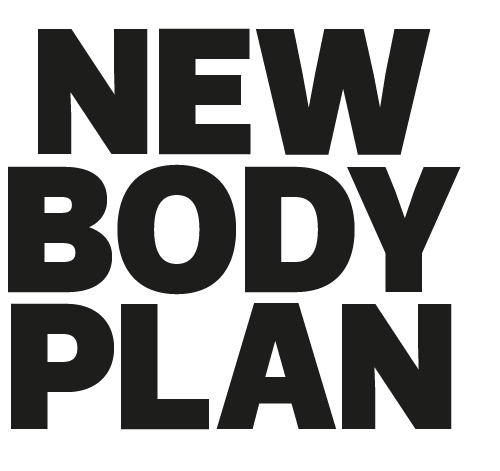Boost growth hormone to build muscle, burn fat and recover faster
Better understand the critical role human growth hormone has to play in instructing your body to prioritise adding lean muscle mass and burning excess fat to finally unlock your health and fitness potential, says New Body Plan’s Joe Warner
Most men want to lose their love handles or shift stubborn chest fat or blast off belly fat, as well as build bigger arms, stronger shoulders and a lean and defined chest. If that sounds like you, then you need to know the critical role human growth hormone (GH) has to play in your better-body transformation. GH is a powerful, naturally occurring hormone that has a major role in growth, metabolism, and repair.
The trouble is, growth hormone, similarly to testosterone and cortisol as well as the endocrine system at large, is a subject shrouded in complexity and misinterpretation. Trying to understand it all and get your hormones working for you rather than against you is a bit like trying to solve a Rubik’s Cube. Blindfolded. And underwater. That’s why we’ve put together your need-to-know guide on human growth hormone so you can finally get the health and fitness results you want!
TL;DR Growth hormone, the body’s naturally occurring catalyst for muscle growth, fat reduction, and recovery, can be a powerful ally in your fitness journey. Overuse or artificial supplementation can, however, lead to complications. Aim to boost your growth hormone naturally through intense weights workouts, quality sleep, and a nutrient-dense balanced diet.
Find your perfect fat-loss plan!
Take the New Body quiz!
What role does growth hormone play in muscle building?
Growth hormone is a catalyst in the symphony of muscle growth and repair. Its modus operandi involves an intricate collaboration with insulin-like growth factor 1 (IGF-1), which together drive the process of muscle hypertrophy and hyperplasia. This is growth hormone’s primary claim to fame in the world of fitness, as the increase in muscle size (hypertrophy) and the increase in muscle cells (hyperplasia) are the building blocks of that desired muscular physique.
But the role of GH isn’t limited to muscle building. It also aids in collagen synthesis, which aids in joint and tendon health – crucial for those lifting heavy weights. Interestingly, a study in the Journal of Endocrinology stated that “growth hormone significantly amplifies the muscle-building response to weight training.” However, it’s worth noting that artificially boosting GH levels beyond their natural range may not yield additional benefits and can even come with health risks.
How does growth hormone influence fat loss?
The fat-burning prowess of growth hormone lies in its role in lipolysis. Lipolysis, the process of fat breakdown, essentially turns fat cells into usable energy. Growth hormone, therefore, nudges your body into burning fat more efficiently and effectively. Furthermore, growth hormone also hinders the storage of glucose and amino acids in fat cells, further putting a dent in fat accumulation.
A 2012 study from the Journal of Obesity stated: “GH plays a crucial role in fat metabolism, promoting lipid breakdown and inhibiting fat accumulation.” Yet, while GH aids in fat loss, relying solely on it for fat reduction is not recommended. A balanced diet and regular exercise are the cornerstones of effective fat loss.
What is the relationship between testosterone and growth hormone?
Growth hormone and testosterone are both anabolic hormones, meaning they assist in tissue growth and development, and play pivotal roles in muscle growth, strength, and recovery. Interestingly, these hormones do not operate in isolation. Rather, they interact in a symphony of hormonal interplay, influencing and amplifying each other’s effects.
For example, GH stimulates the testes to produce more testosterone, which in turn amplifies GH secretion, creating a positive feedback loop. However, this delicate balance can be thrown out of sync with artificial supplementation, potentially leading to hormonal imbalances, affecting everything from mood to metabolism.
Can I increase growth hormone naturally?
Absolutely. Thankfully, our bodies are wired to respond to certain natural stimuli to boost growth hormone production. Intense workouts, particularly resistance training and high-intensity interval training (HIIT), are proven stimulators of GH release. The exertion during these exercises signals your body to up the GH production to aid in muscle repair and growth.
A significant amount of growth hormone is also secreted during our sleep, specifically during the stages of deep sleep. Hence, ensuring quality sleep is as much a part of your fitness regime as your diet and workout.
Speaking of diet, a balanced one, packed with protein and low in high-glycemic carbs, also bolsters natural GH production. Eating foods rich in amino acids like arginine and lysine can stimulate GH secretion. Moreover, maintaining a healthy body weight, particularly low belly fat, can optimise GH production.
5 ways to stimulate growth hormone release
- Workout intensely: Incorporate resistance training and HIIT in your workout regimen to stimulate GH release.
- Sleep well: Prioritise seven to nine hours of quality sleep each night to optimize GH production.
- Eat a balanced diet: Choose protein-rich foods and avoid high-glycemic sugary carbs to naturally boost GH.
- Limit alcohol: Alcohol can disrupt sleep and GH release. Moderate your intake.
- Manage stress: Chronic stress can impair GH production. Adopt stress management strategies like mindfulness and meditation.
How to use the chest press machine to build a bigger and stronger chest
Does growth hormone production decline with age?
GH production naturally decreases with age. However, it’s important to note that GH supplementation is not a magic elixir for ageing. While it might be tempting to see GH supplements as a ticket to eternal youth, the reality is far from it. The potential health risks often overshadow the potential gains, especially for older men with normal GH levels.
Moreover, GH supplementation might not provide the benefits one might expect. A research study found that while GH supplementation in older adults increased muscle mass, it did not improve muscle strength or exercise capacity. Therefore, before considering GH supplementation, it’s essential to consult with a healthcare professional to assess its potential benefits and risks.
What are the dangers of growth hormone supplementation?
Growth hormone supplementation is not a silver bullet and carries potential health risks. While it can be beneficial for those with GH deficiency, misuse or overdosing can lead to undesirable side effects. These can range from milder symptoms like joint pain, muscle weakness, and fluid retention, to more severe ones like insulin resistance and high blood sugar levels.
Moreover, excessive GH can lead to a condition known as acromegaly, characterised by abnormal growth of the hands, feet, and face, which is irreversible once developed. The Journal of Clinical Endocrinology and Metabolism points out that “the long-term effects of excessive GH are not fully known, necessitating caution in its supplementation.” As such, GH supplementation should never be self-prescribed and should be considered only under medical supervision.
Can I test my GH levels?
Yes, you can. Growth hormone levels can be measured through a simple blood test. But bear in mind that GH is released in pulses, and levels fluctuate throughout the day. Therefore, a single measurement might not give an accurate picture of your GH status.
Moreover, GH secretion increases in response to various stimuli, such as exercise, sleep, and stress. Therefore, your healthcare provider may use a GH stimulation test, which involves inducing these stimuli and then measuring GH response. They can guide you through the process, interpret the results, and recommend appropriate actions based on those results.
Find your perfect fat-loss plan!
Take the New Body quiz!

